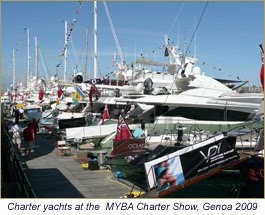Commercial Charter Yachts following HMRC Revenue Brief 56/09
Prior to January 2000, there was no guidance on how a yacht charter company could obtain VAT registration and comply with the EU requirements relating to VAT on yachts. Article 148 (previously Article 15) provides for exemption to commercially registered yachts in commercial use on the high seas. This exemption has been ratified by most EU member states, although the United Kingdom has specifically excluded yachts from this exemption. The Isle of Man issued their letter for guidance in January 2000 and this letter has been the main guidance for yachts owned through Manx registered companies and chartering in EU waters. Following the HMRC Brief 56/09 this letter has been withdrawn and its guidance can no longer be used.
Unfortunately, rather than clarifying the position the HMRC Brief 56/09 Chris Allix one of the industry’s most knowledgeable experts in VAT for yachts thinks it has left the industry without specific guidance. He believes this Brief is intended to prevent VAT avoidance by owners wanting to benefit from the EU exemptions available under Article 148 without actually using the yacht in any form of commercial activity to third parties, i.e. owning the yacht through a VAT registered company, registered as a commercial vessel, but only chartering it to themselves (albeit at a commercial rate and paying the charter fee). The French Code of Practice for charter yachts allows an owner to charter the yacht for a reasonable period, but specifically excludes commercial yachts from benefiting from Article 262 of the French Tax Code if the yacht is chartered for the majority of the season by the owner.
Following the Isle of Man 2000 letter ICM the firm started by Allix used to show that over a 20 year period the owning company would expect to show a profit taking into account the initial cost, running expenses (based on an annual cost of 10% p.a.) against the expected annual charter income. As mentioned this method of calculation no longer applies, and a more robust business plan is required. This will be showing the ownership over a shorter period (probably 5 years), the appointment of a central charter agent, a letter from the central showing the expected charters by the client and also other parties, and the expected annual costs, finally we will get a written estimate of the residual value for the yacht after the period. In addition to this business plan (which must show a profit) we must provide a copy of the purchase/building contract and show the source of the purchase price.
Allix believes the Isle of Man will remain the principal jurisdiction for the ownership of Charter Yachts and VAT registration, but only for the clients using their yachts in a truly commercial manner, which can within reason include charter by the client.

